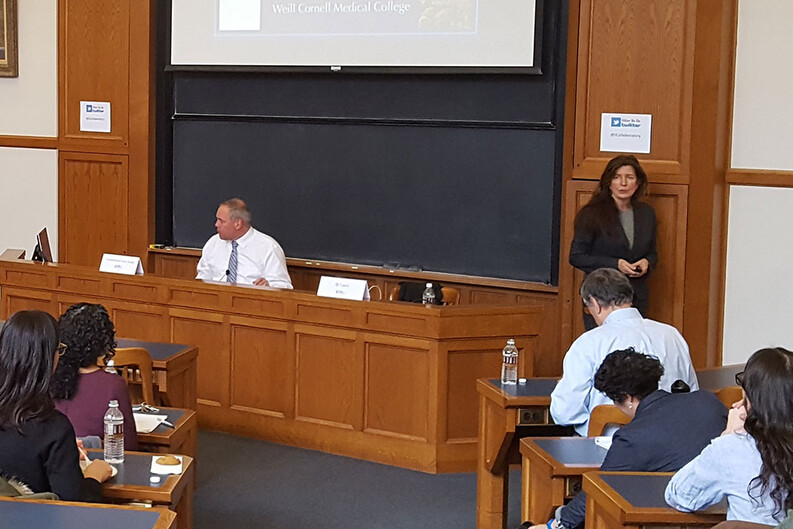BJ Casey Discusses the Adolescent Brain

BJ Casey, Professor of Psychology at Yale University, joined YLS students, faculty, and members of the community at the Justice Collaboratory Speaker Series on Tuesday, February 21, 2017. Dr. Casey spoke on the development of the brain across adolescence and implications for the juvenile justice system.
The adolescent brain is often erroneously likened to a defective car where just the accelerator works, Casey explained. Instead, there is a developmental imbalance, whereby the brain’s limbic systems, associated with reward and emotion, develop earlier than prefrontal regions responsible for self-control. Given that, adolescents are especially sensitive to rewards, to threats, and to their peers. Casey highlighted research demonstrating that, while in many contexts adolescents are as good, if not better, than adults on cognitive tasks, the presence of peers or of emotional contexts can cause sharp declines in performance and decision-making.
Commissioner Scott Semple of the Connecticut Department of Corrections joined Dr. Casey to discuss how practitioners might incorporate such insights from adolescent neuroscience and developmental research. Commissioner Semple detailed a pilot program just launched in the Cheshire Correctional Institution, creating a Young Adult Offender unit for 18–25-year-old inmates. Corrections officers on this unit are specially trained on issues of adolescent neuroscience and mental health. Relative to their small percentage within the prison population, 18–25 year olds are responsible for a quarter of prison disciplinary infractions. On this new unit, Semple suggested, officers can work to build trust with young adult offenders, in the service of increasing well-being and decreasing recidivism.
Additional Speaker Series planned by the Justice Collaboratory include:
3/7/17—Kim Taylor-Thompson, “Minority Rule: Redefining the Age of Criminality”
3/28/17—Arielle Baskin-Sommers, “The Neuroecology of Antisocial Behavior: Implications for the Legal System”
4/11/17 —Jennifer Eberhardt, “Social Psychological Approaches to Race and Crime”
Visit our website for more information on registering for these events, or to find out about the Justice Collaboratory.


